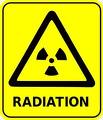Are Japanese Authorities Covering Up Further Damage to the Fukushima Reactor from the Aftershock ?

The Japanese government and Tepco nuclear plant operator said that the leaking Fukushima reactors suffered no additional damage in the aftershock last week.
But NHK news reports:
The plant operator says a strong aftershock on Thursday night did not damage any facilities of the compound, but the surface temperature of the Number 1 reactor rose sharply immediately after the tremor that hit northeastern Japan minutes before midnight.
The reading stood at 223 degrees Celsius at 7 PM, but it rose nearly 40 degrees just after the quake. The temperature had fallen back to 240 degrees at 6 AM on Saturday.
Moreover, the Japanese government reports radiation levels in the number 1 reactor of at least 100 sieverts per hour:
In contrast, radiation levels were apparently about 300 sieverts per hour – 3 times higher – right after Chernobyl exploded.
However, reactor 1 might not even be in as bad shape as some of the other reactors at the Fukushima complex, the total amount of radioactive material at Fukushima dwarfs that at Chernobyl, and it might take years to solve the crisis.
Indeed, Tyler Durden reports that the Japanese government stopped reporting radiation data after levels hit 100 sieverts per hour.
This isn’t entirely unexpected. As the New York Times notes:
The public authorities have sought to avoid grim technical details that might trigger alarm or even panic.
“They don’t want to go there,” said Robert Alvarez, a nuclear expert who, from 1993 to 1999, was a policy adviser to the secretary of energy. “The spin is all about reassurance.”
Confidential reports paint a much less optimistic picture of the crisis. See this and this.

